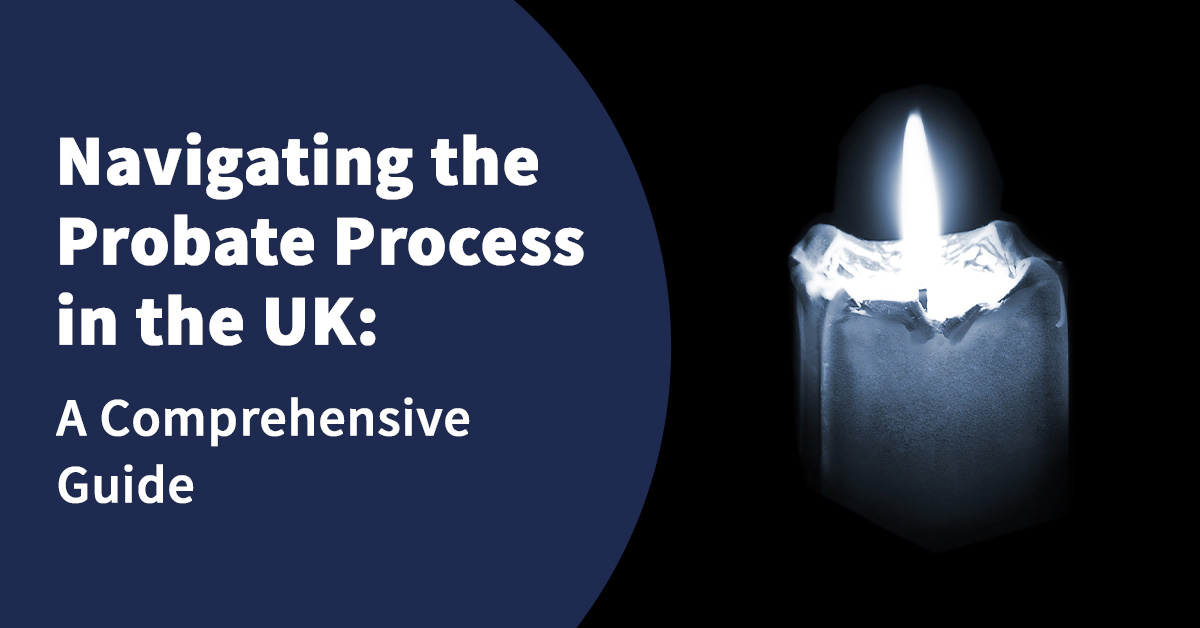The passing of a loved one is an emotionally challenging time, and dealing with the legal aspects can add to the stress. In the United Kingdom, the process of handling someone’s estate after they have passed away is known as probate. Understanding the steps involved in the probate process can help you navigate this often complex and lengthy procedure. In this comprehensive guide, we will outline the probable process in the UK, shedding light on the key steps involved.
- Confirming the Executor
Upon the death of an individual, the first step is to confirm who has been named as the executor of the deceased’s will. The executor is responsible for administering the estate and carrying out the wishes specified in the will. If there is no will, the court will appoint an administrator to handle the estate. The executor or administrator must apply for a grant of representation to proceed with the probate process.
- Valuing the Estate
The next step is to assess the value of the deceased’s estate. This includes determining the total value of all assets, such as property, investments, bank accounts, and personal belongings, as well as any outstanding debts or liabilities. Valuing the estate is crucial as it determines whether inheritance tax needs to be paid.
- Paying Inheritance Tax (if applicable)
If the value of the estate exceeds the inheritance tax threshold, which is currently set at £325,000, inheritance tax may be due. The executor or administrator must calculate and pay the tax owed to HM Revenue and Customs (HMRC). In certain cases, it may be possible to reduce the inheritance tax liability through various exemptions and reliefs.
- Applying for a Grant of Probate
To gain legal authority to administer the estate, the executor or administrator must apply for a grant of probate. This involves completing an application form and submitting it to the Probate Registry, along with the required documents and the applicable fee. The Probate Registry reviews the application and issues the grant of probate, which confirms the executor’s legal right to distribute the assets.
- Settling Debts and Liabilities
Before the assets can be distributed among the beneficiaries, any outstanding debts and liabilities of the deceased must be settled. This includes paying off any outstanding mortgages, loans, credit card bills, and other debts. It is crucial to ensure that all debts are appropriately settled before proceeding further in the probate process.
- Distributing Assets
Once all debts have been paid, the executor can begin distributing the assets among the beneficiaries according to the terms specified in the will. This may involve transferring ownership of properties, liquidating investments, closing bank accounts, and distributing personal belongings. The executor must keep detailed records of all transactions and obtain receipts for any distributions made.
- Finalizing the Probate Process
After all assets have been distributed, the executor must prepare final accounts, outlining all the financial transactions carried out during the probate process. These accounts are then presented to the beneficiaries for their review and approval. Once approved, the executor can finalize the probate process by submitting the accounts to the Probate Registry, along with any outstanding taxes owed.
Dealing with the probate process in the UK can be a challenging and time-consuming task. However, by understanding the probable process involved, you can navigate through it more effectively. It is advisable to seek professional advice from a solicitor or probate specialist to ensure compliance with all legal requirements and to receive guidance throughout the process.
You can find the requisite forms and guidance on probate including fees, where to send your probate forms (PA1A and PA1P) and supplementary forms to support your application here:
While this guide provides an overview, every estate is unique, and it is essential to tailor the process to fit specific circumstances.
By doing so, you can ensure a smooth and efficient administration of your loved one’s estate
Find out how we can help you
If you would like to understand more about this topic get in touch
Related posts
- Published On: July 3, 2024|2.4 min read|
Understanding Inheritance Tax for UK Domicles: What You Need to Know
Inheritance tax (IHT) is a topic that often causes concern, but understanding it can help you plan more effectively for the future. Here’s a concise overview of what you need to know about inheritance tax, how it works, and ways to manage it.
Read more












